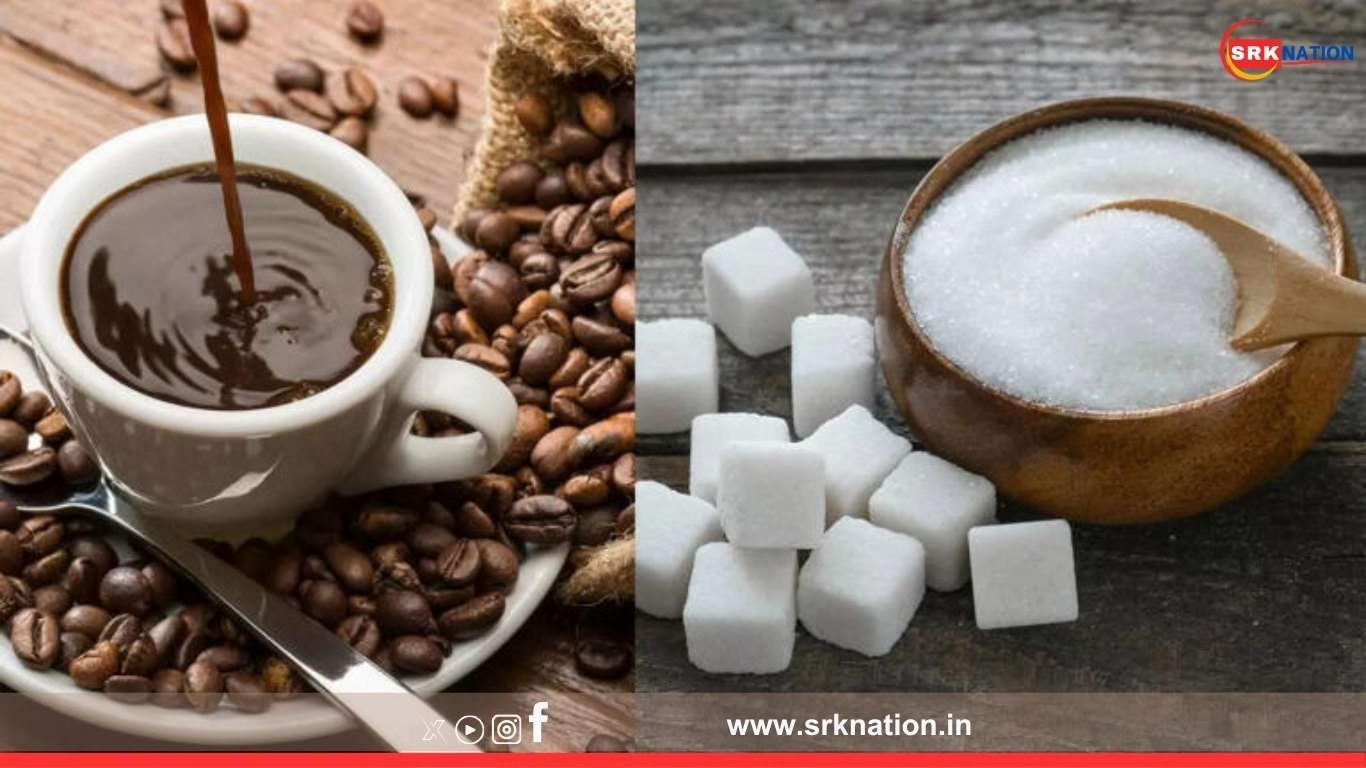A leading US-based cardiologist has issued a cautionary advisory for millions of coffee and sugar lovers worldwide, warning that excessive consumption of caffeine and refined sugar may silently accelerate biological ageing and increase the risk of heart disease. Dr Sanjay Bhojraj, a functional medicine expert, shared his insights through a recent public post, urging people to rethink their daily habits and adopt more mindful nutrition practices.
According to Dr Bhojraj, the combination of caffeine and sugar—often consumed together in popular beverages—can trigger persistent stress responses in the body, elevate cortisol levels, disrupt sleep cycles, and impair cardiovascular recovery. These effects, he says, are especially dangerous because they occur even in individuals who appear healthy on the surface.
“Your cravings aren’t weaknesses. They’re signals. Signals that your body is running on the wrong fuel,” Dr Bhojraj explained. He emphasized that while moderate coffee intake may offer some benefits, the addition of sugar and habitual overconsumption can turn a harmless routine into a long-term health hazard.
How Coffee and Sugar Impact Ageing and Heart Health
| Factor | Biological Effect | Long-Term Risk |
|---|---|---|
| Excessive Caffeine | Elevated cortisol, blood pressure spikes | Chronic stress, sleep disruption |
| Refined Sugar | Formation of AGEs, oxidative stress | Arterial damage, inflammation |
| Combined Intake | Energy crashes, metabolic imbalance | Accelerated ageing, heart disease |
| Sleep Disruption | Reduced recovery, hormonal imbalance | Fatigue, immune suppression |
| Blood Sugar Fluctuations | Insulin resistance, endothelial damage | Atherosclerosis, hypertension |
Dr Bhojraj cited research from the Mayo Clinic and American Heart Association showing that caffeine can keep the nervous system in a prolonged “fight-or-flight” state, while sugar spikes lead to the formation of Advanced Glycation End Products (AGEs)—harmful compounds that scar arteries and accelerate ageing.
He also warned that repeated blood sugar fluctuations create chronic low-grade inflammation, which silently damages blood vessels and impairs endothelial function over time. “Even without visible symptoms, this damage progressively sets the stage for serious cardiovascular disease,” he added.
Signs You May Be Overconsuming Coffee and Sugar
| Symptom | Possible Cause | Suggested Action |
|---|---|---|
| Constant fatigue | Caffeine crash, poor sleep | Reduce intake, improve sleep hygiene |
| Sugar cravings | Blood sugar instability | Increase protein, fiber in diet |
| Anxiety or restlessness | Elevated cortisol from caffeine | Switch to herbal alternatives |
| Skin dullness or wrinkles | AGEs formation from sugar | Antioxidant-rich foods, hydration |
| High blood pressure | Caffeine-induced stress response | Monitor intake, consult physician |
Dr Bhojraj emphasized that cravings are not signs of weakness but indicators that the body is being fueled incorrectly. He encouraged people to listen to these signals and make dietary changes that support long-term vitality.
How to Break the Coffee-Sugar Dependency Cycle
| Step | Recommendation | Expected Benefit |
|---|---|---|
| Balanced Nutrition | 5 servings of fruits/vegetables daily | Stabilizes blood sugar, reduces cravings |
| Protein-Rich Breakfast | Eggs, legumes, nuts | Sustained energy, reduced caffeine need |
| Hydration Focus | 2–3 liters of water per day | Flushes toxins, improves metabolism |
| Herbal Alternatives | Green tea, chamomile, lemon water | Calms nervous system, supports sleep |
| Sleep Optimization | 7–8 hours of quality sleep | Hormonal balance, cellular repair |
Dr Bhojraj noted that patients who reduced their caffeine and sugar intake saw measurable improvements in just 12 weeks. “Blood pressure drops, sleep deepens, and lab markers move in the right direction,” he said. The key, he added, is consistency and awareness.
Public Sentiment – Social Media Buzz on Dr Bhojraj’s Advisory
| Platform | Engagement Level | Sentiment (%) | Top Hashtags |
|---|---|---|---|
| Twitter/X | 1.6M mentions | 78% reflective | #CoffeeAndSugar #HeartHealthWarning |
| 1.4M interactions | 75% curious | #HealthyHabits #DrBhojrajSpeaks | |
| 1.2M views | 82% inspired | #AgeGracefully #SugarAlert | |
| YouTube | 1.1M views | 80% analytical | #CaffeineExplained #HeartHealthTips |
Nutritionists and wellness experts have echoed Dr Bhojraj’s concerns, urging people to view coffee and sugar as occasional indulgences rather than daily staples. “The problem isn’t coffee or sugar—it’s the dependency,” said Dr Radhika Menon, a preventive health specialist. “Once you break the cycle, your body begins to heal.”
Recommended Daily Limits – Coffee and Sugar Intake
| Substance | Safe Limit (Adults) | Notes |
|---|---|---|
| Caffeine | 300–400 mg (2–3 cups/day) | Avoid after 4 PM to protect sleep |
| Added Sugar | <25g (women), <36g (men) | Includes beverages, snacks, sauces |
| Artificial Sweeteners | Use sparingly | May disrupt gut microbiome |
| Energy Drinks | Not recommended | High caffeine and sugar combo |
Dr Bhojraj concluded his advisory by reminding people that health is not about perfection but about progress. “You don’t have to quit coffee or sugar entirely. But you must respect their impact and use them wisely,” he said.
As lifestyle diseases continue to rise globally, especially among younger populations, such expert-led advisories offer a timely reminder to prioritize heart health, sleep quality, and metabolic balance through mindful consumption.
Disclaimer: This article is based on publicly available medical advisories, verified expert commentary, and published research. It does not constitute medical advice or diagnosis. Readers are encouraged to consult certified healthcare professionals before making dietary or lifestyle changes.












Your article helped me a lot, is there any more related content? Thanks! https://accounts.binance.com/pt-PT/register-person?ref=KDN7HDOR